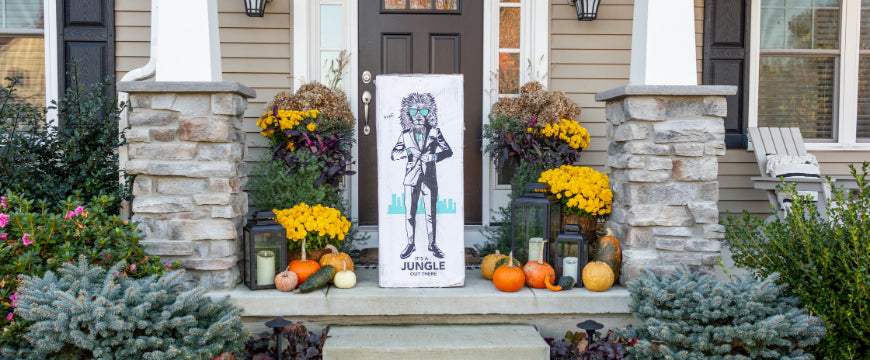
Effects of Fall Weather on Sleep
Share
Transitioning from summer to fall is rife with pumpkin-spiced everything, the beauty of colorful leaves, and a much lower chance of enjoying a lovely day outside without sweat and mosquito bites.
It also means that the sky’s moving along as well -- the sun sets earlier and rises later. If you’re an early riser, it might be harder to wake up before 7 am without the push of daylight. Waking up later might lead you to sleep later, thus shifting your entire sleep schedule.
Fall weather also comes with cooler weather, which is a sigh of relief to those of us in hot climates who’d like to enjoy a day out hiking in the mountains. But for some of us, it can further trigger depression. Studies have shown that people affected with Seasonal Affective Disorder often experience hypersomnia, or excessive sleeping, during fall and winter.
Part of that ties back into our earlier point of lacking that daylight cue, but also to the seasonal depression triggered by the darker and cloudier skies. Less sunlight makes it harder to produce vitamin D, a vitamin that stimulates serotonin production. Consequently, not having enough serotonin can make you more depressed and tired throughout the day, which isn’t exactly conducive to a healthy work or social life. Working as closely to a window as you can helps with overall health and sleep quality though, even if it’s getting dark by 4:30.
For many of us, fall temperatures can actually make it easier for you to sleep -- studies show that a temperature of 60-70 degrees is most conducive to falling and staying asleep. If you’re in a climate where the fall weather usually falls within that range, you’re in luck. That means you’re less likely to toss and turn in the heat -- mattresses with cooling gel layers can help!
However, if your environment also brings a lot of harsh, disruptive weather like loud thunderstorms, this can keep you up. Aside from the loud noises, there’s also the anxiety of whether that lightning strike is coming towards you or not. And if you’ve got seasonal allergies around this time -- fall flu season is definitely a thing -- this might make it even harder to sleep when you’re busy sneezing, sniffling, coughing, and rubbing your itchy eyes.
Fall is also a huge party season for many of us, with events such as cultural autumn festivals, Halloween, and Thanksgiving. All that partying takes such a toll, we had to write our own blog post on it with tips on how you can fight back. In summary, alcohol, jet lag, lack of gym time (if you’re traveling), and sleeping in an unfamiliar space can take a toll on how long we sleep and when we even crawl into bed in the first place.
So how do we have a well-rested fall?
While we can’t change the rotation of the sun, there are a few measures we can take on our own to slightly counteract the gloom of the darker days and the lure of alcohol. The simplest one money can buy are the vitamin D supplements that can be found in most drugstores around.
The aforementioned mental health issues are far more complex and solutions will vary for every individual, depending on each person’s individual triggers outside of the weather. What we do know though, are some ways to help us destress so we’re mentally free to drift off into sleep. The most effective ways of destressing, soothing, and unwinding will vary from person to person, but it doesn’t hurt to try a few simple easy tricks that won’t call for a ton of time or drain your bank account.
